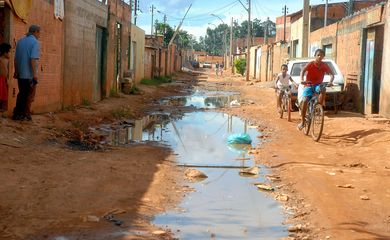Federal funds for local sanitation projects conditional on plan submission

Seventy percent of Brazil's 5,570 municipalities are blocked from accessing federal funds to help them with sanitation projects because they have no Local Sanitation Plans in place, a requirement which was introduced as of 2014. Local governments claim they are having difficulties due to insufficient funds and skilled personnel to draft the plan.

According to the Ministry of Cities' Director of Institutional Coordination, Ernani Ciríaco de Miranda, explained that “access to water management funds is blocked to local governments until they submit their projects – unless the effective date [of the law that has introduced the requirement] gets postponed, which is under consideration.”
The Ministry of Cities provides technical and financial support to 115 municipalities with populations over 50,000 to draft their plans, for a total $41 million. For the sanitation plans of the 4,900 municipalities with populations below this threshold, funding will be provided by the National Health Foundation, a government agency that has already used $56 million in projects for 635 municipalities.
In order to be entitled to the federal funds, projects must include a long-term budget plan for drinking water supply, waste water collection and treatment, urban cleaning, solid waste management, and rainwater drainage and management.
According to the National Sanitation Information System, 82% of the population have access to water from the supply network. Among urban populations alone, this rate rises to 93%. Sewage disposal systems are available to as little as 48% of the population, and only 38% of sewage is treated.
Translated by Mayra Borges
Fonte: Federal funds for local sanitation projects conditional on plan submission



